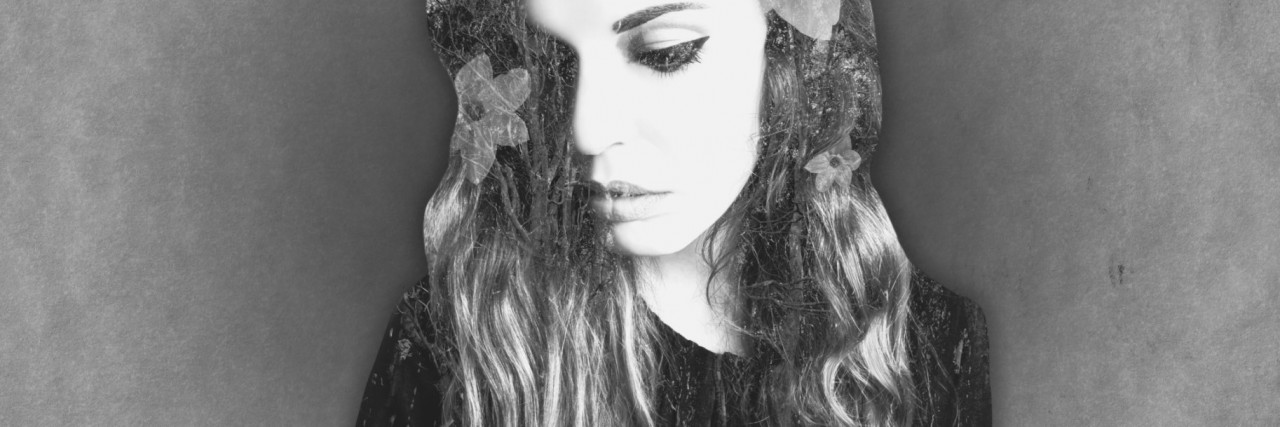To the new Survivor of Suicide,
I was you.
We will be Survivors for the rest of our lives, but in those first moments, everything is too raw to really understand what that means. So take a minute and breathe. Your life has just completely changed, but you will be OK.
The first person I called was a best friend, hoping she would tell me my boyfriend is probably fine behind that locked door to our back office. But she said she and her husband were on their way, and I needed to call 911. It’s OK if your first thought isn’t to call 911. What’s happening is traumatic, and you’re in denial. You’re probably hoping the situation can be anything but what’s actually happening. Your first acceptance that you’re encountering a serious situation is tough, and it’s about to get tougher, but you will be OK.
“I’m sorry to say this, miss, but your husband — I mean your boyfriend is deceased.” When the statement finally comes, and your loved one’s death is confirmed, brace yourself for reactions you don’t expect. I was oddly silent. Maybe you’re hysterical. Nothing about the situation will be what you expect, but just remember to breathe. It might seem hard to believe in this moment, but trust me, you will be OK.
I walked outside to sit on my stoop, and a young officer followed and told me he’s not supposed to leave me alone. “When my friends show up, can you tell them?” I asked. It’s OK to ask for help. No matter what, you need to ask for help. It’s time to put humility aside and let people go out of their way for you. You need to heal, and eventually, you will be OK.
My friends arrived, and the officer pulled them aside. A gasp and suddenly there were arms around me. You will receive so many hugs in the coming days. A hug is someone physically telling you that you are loved. Don’t you ever forget that: You are loved and you will be OK.
My friend kept telling me when to breathe in and out. I’m pretty sure I would have forgotten if she wasn’t there. Basic things might seem hard for a while. If this happens, don’t be embarrassed. People love you and are sympathetic. If they can remind you how to do something simple and it’s successful, that’s something to celebrate. But maybe later. I know right now it seems like celebrations will never be possible again, but as time goes on, you’ll learn to love more and not get upset over the little things. You will be OK.
Another friend showed up. I handed her my phone and told her I didn’t want to see it for a few days. She needed to make The Call. I threw up. Staring at the concrete and vomit, I suddenly thought of some of his and my friends. Where were they all in that moment, blissfully unaware? I envied them. I gave her a few names, knowing others could help spread the word. The Call is not fun, so don’t do it if you don’t want to. Always ask for help when you need it. Keep yourself in a safe place so you will be OK.
I realized I still hadn’t cried yet. “What is wrong with me?” I thought. If you experience this, it’s OK. My therapist would later tell me that is normal during shock. You’re not broken, just hurt. The crying will come tomorrow, and every day for a long time. But crying is healthy, so you will be OK.
Over the next several hours and days, people from all over the country were suddenly here. I dreaded the thought that everyone would eventually go home again and leave me all alone. But know you are never alone. You are loved. There is always someone who loves you. I love you. You will be OK.
I am sad to say I had some scary thoughts in those first two days and am eternally grateful no one left me alone long enough for me to process those thoughts fully. Suicidal thoughts are normal in the aftermath of a suicide, but you must not believe any of it. You are valuable. You are loved. There is help. I know suicide is suddenly more real than it ever has been before, but please believe me, you will be OK.
Since his death I have learned a lot. I have healed a lot. I read some books on grief by survivors like us. Coloring books are also oddly therapeutic. Stick to the things you love to do. Focus on you. Ask a friend to help you find a therapist, and if you can, one that specializes in grief. Finding the right therapist can be tricky and may take some trial and error, but when you get there, it is so worth it! There are support groups for survivors like us. Other survivors and myself are living proof that life after the suicide of a loved one is possible. I will always miss him, but I am OK, just like you will be too.
For life after those first 48 hours, I made a blog.
If you or someone you know needs help, see our suicide prevention resources.
If you need support right now, call the Suicide Prevention Lifeline at 1-800-273-8255.

